Working with content views
#Overview
Content views are basically the way our content is displayed in the content editor. They are divided into:
- Default views: Generated automatically. They show the default columns configuration and without any filter criteria applied.
- Custom Views: Generated by users. They show a specific columns configuration and filter conditions, selected and saved by the user.
#What you can do
- You can use content views to easily navigate the content in the Content editor
- You can create custom content views to easily access certain content
- You can create view groups t organize your custom content views
#Update default views
When making changes to the content view, by configuring columns, or adding filters (as shown below), these can be saved as the default view for all users of the project.
 Update default view
Update default view
Default views are also reflected inside of connection models when linking other content models.
#Custom views
The default content views are the system views which list all content entries that have been created based on the respective content models. Custom content views are filtered for specific content entries.
After you customize your content dashboard using the three features mentioned above, you can save these customizations using the Content View. This can be a helpful way of organizing your content and making it easier to find.
For example, as a content editor if you are only editing Blog posts written by Annie, you can create a content view called “Annie’s Blog Posts.” This will give you quicker access and let you avoid scrolling through content to find what you are looking for.
#Create a custom view
 Add custom view
Add custom view
- Navigate to the content for one of your models.
- Create a change to the view by either filtering the content in the search bar at the top, or showing/hiding the columns.
- At the top of the content window, press "Add custom view".
- Provide a name and description and press Create.
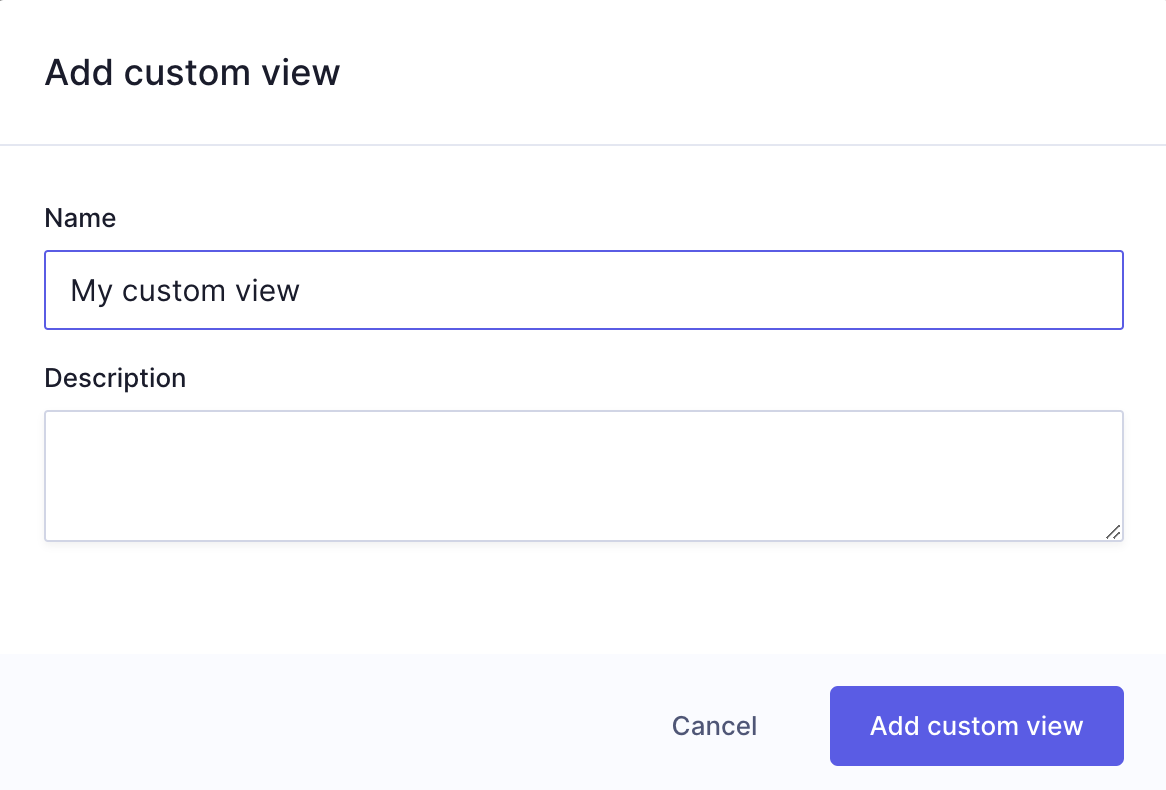 Add a custom view group
Add a custom view group
#Edit a custom view
 Edit custom view
Edit custom view
- Navigate to a custom view in the contextual sidebar of the content tab.
- Next to the title of the content view, press the three disclosure dots and choose "Edit Content View".
- Apply your changes and press save.
#Delete a custom view
 Delete custom view
Delete custom view
- Navigate to a custom view in the contextual sidebar of the content tab.
- Next to the title of the content view, press the three disclosure dots and choose "Delete Content View".
- Confirm you want to delete.
#Organising custom views
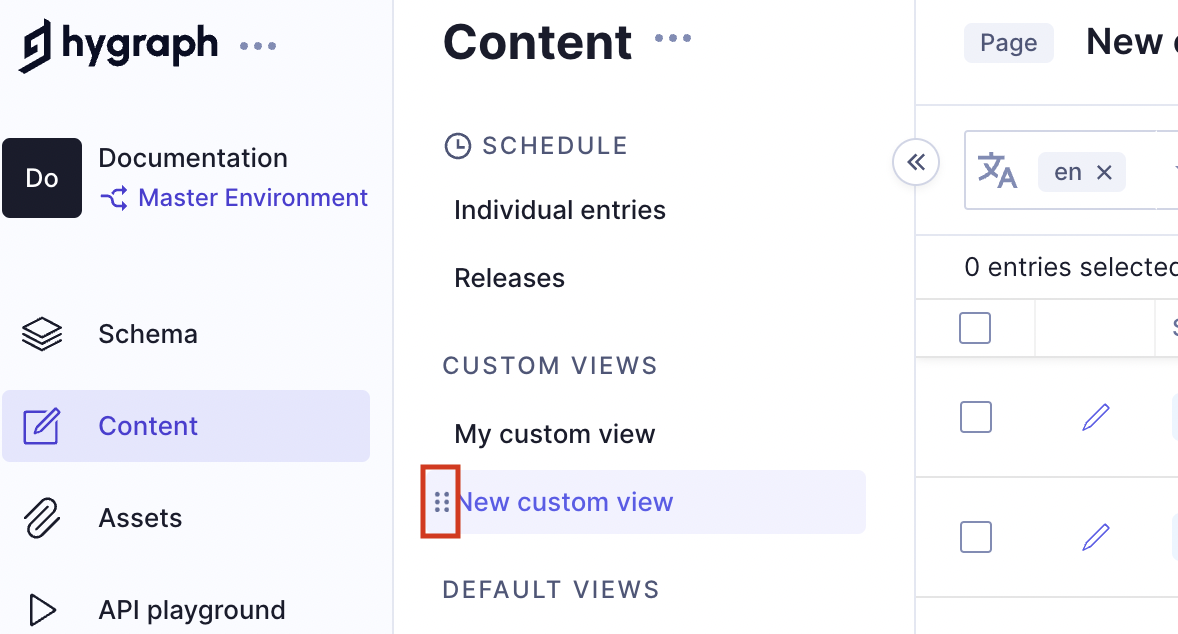 Reorder custom views
Reorder custom views
- Hover your mouse next to a custom view.
- Grab the six-dot handle to the left of the label.
- Change the order of where view groups appear.
#View groups
Custom View Groups let you create a group of Content Views. These can be helpful when working in larger teams as you can create a Custom View Group that contains all of the content for each person. These custom View Groups let team members create their custom dashboards and save them all in one place.
In using these features to customize your content dashboards, teams will be able to set up best practices, optimize their time and experience in Hygraph and focus on creating great content.
View Groups allow you to customize the presentation and selection of content visible to an editor. You can show or hide different columns and filter which content should be included in the group. This allows for an optimized editorial workflow, helping editors to quickly find the content that needs their attention.
 Custom view groups
Custom view groups
#Create a view group
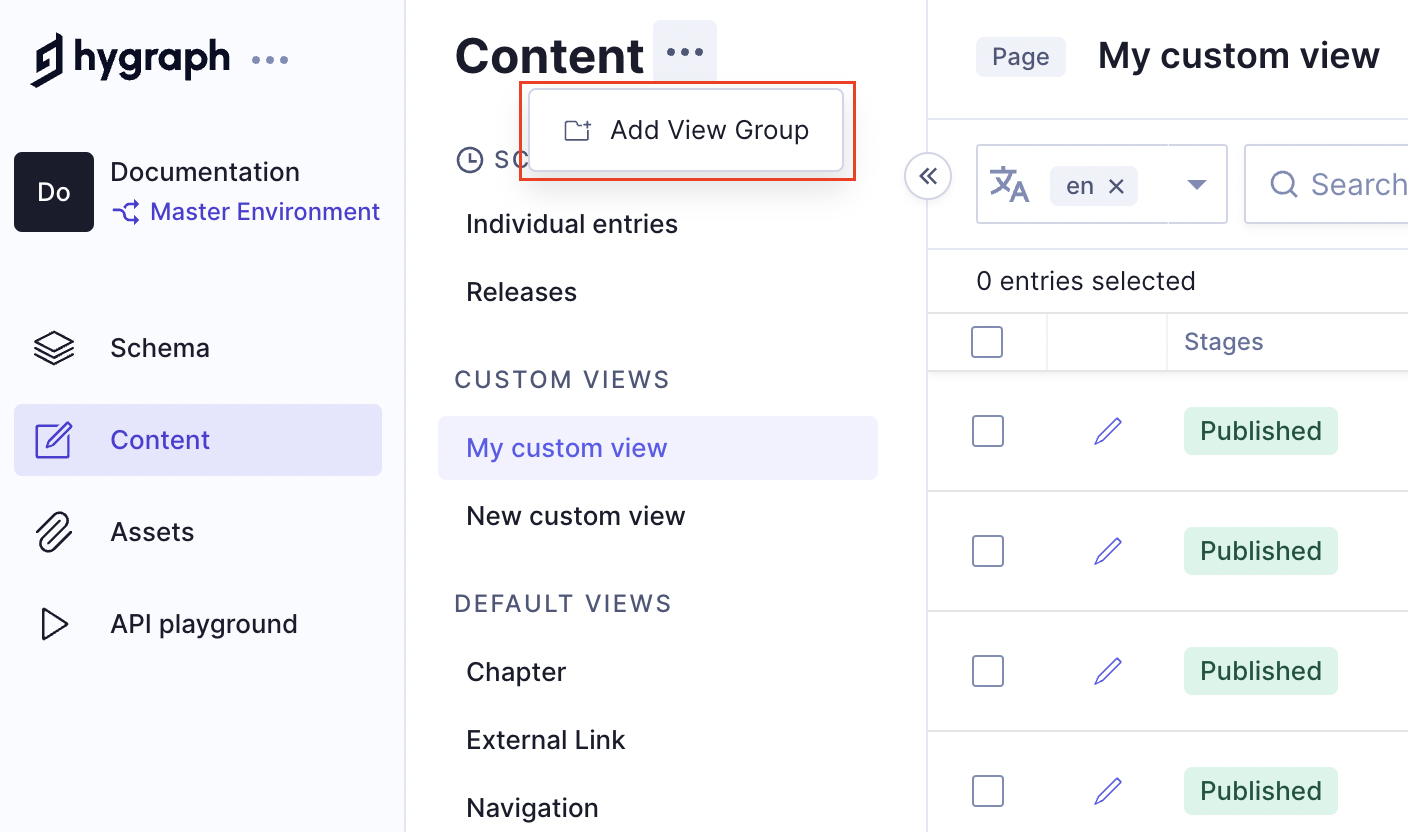 Create custom view group
Create custom view group
- Navigate to the content settings tab.
- Next to the Content title, press the three disclosure dots.
- Choose "Add View Group".
- Provide the name and description.
- Press
Add.
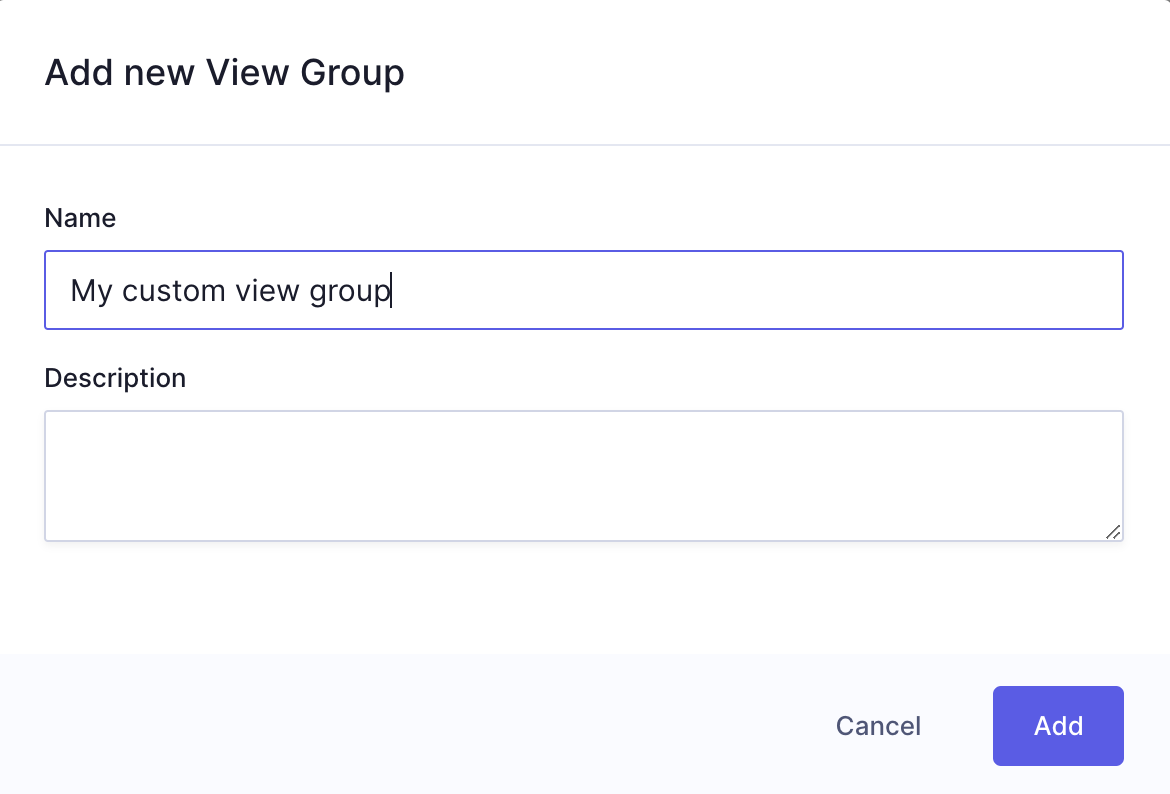 Save custom view group
Save custom view group
#Edit a view group
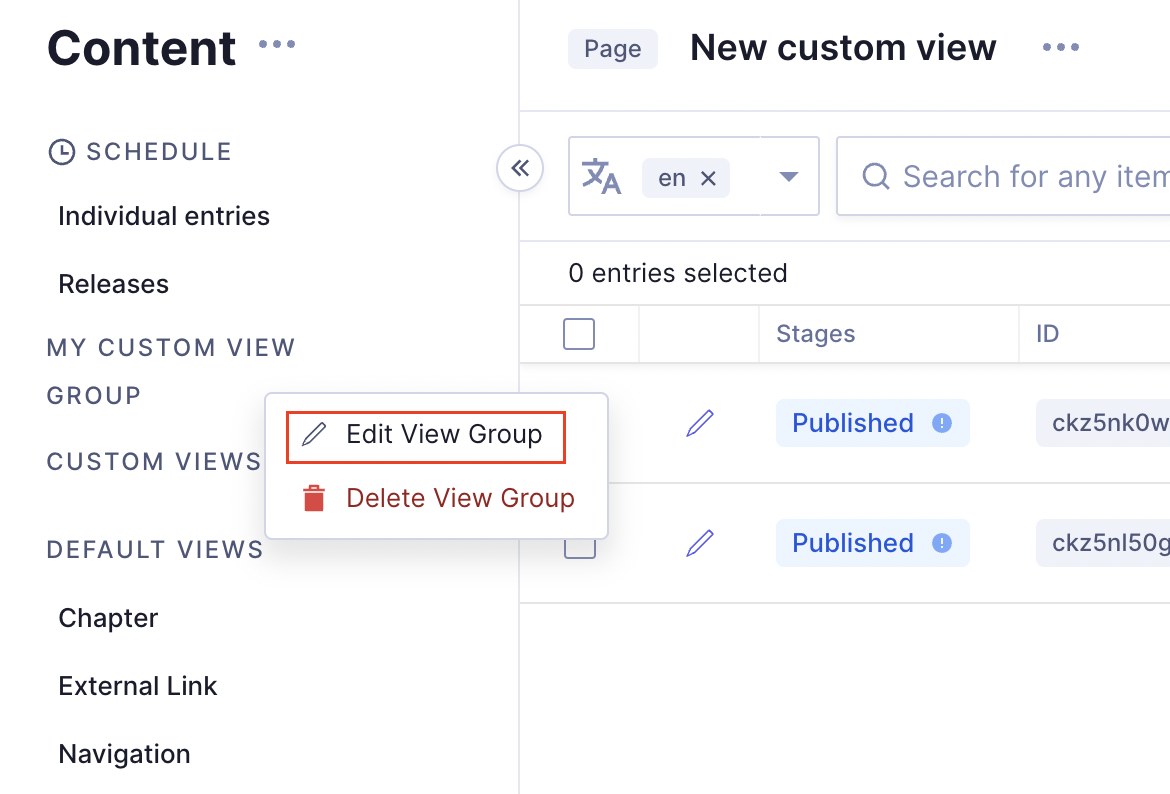 Edit a custom view group
Edit a custom view group
- Locate a custom view group in the contextual sidebar.
- Hover at the right edge of the contextual sidebar, inline with the group name.
- Press the three disclosure dots and choose "Edit View Group".
- Apply your changes and press save to confirm.
#Delete a view group
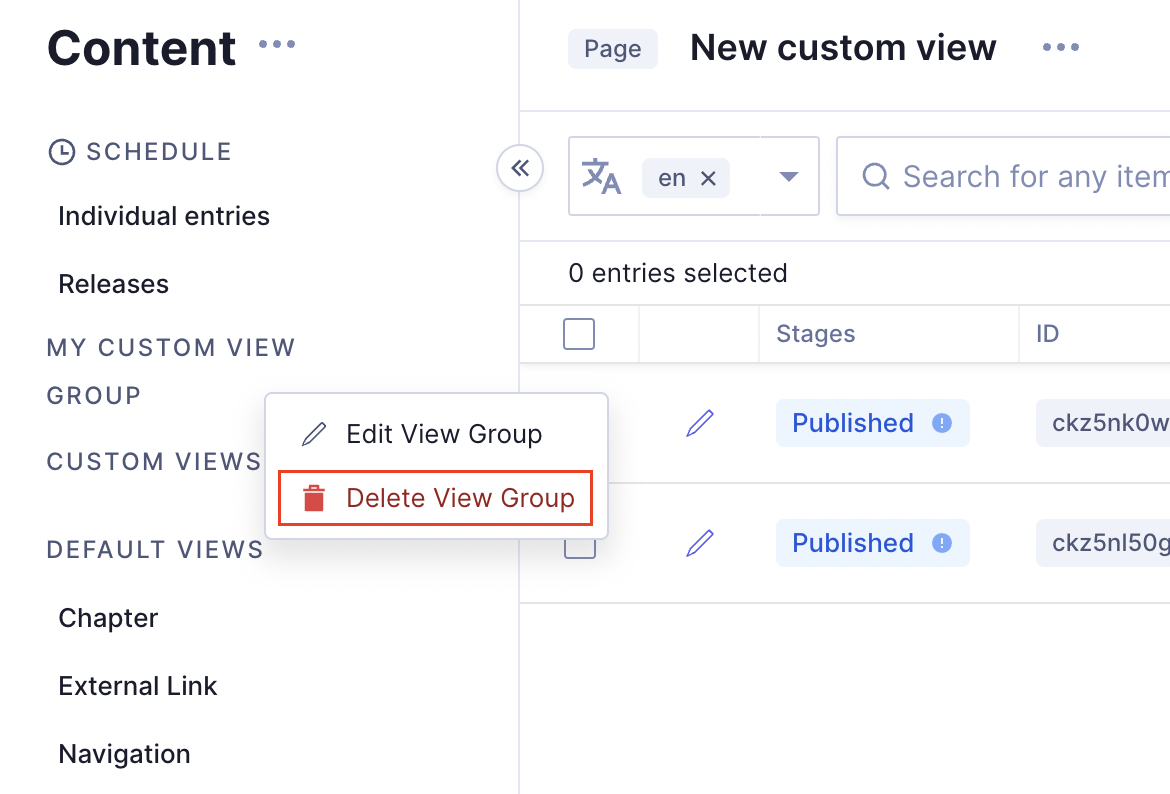 Delete a custom view group
Delete a custom view group
- Locate a custom view group in the contextual sidebar.
- Hover at the right edge of the contextual sidebar, inline with the group name.
- Press the three disclosure dots and choose "Edit View Group"
- Press "Delete View Group" and confirm the deletion.
#Organising custom view groups
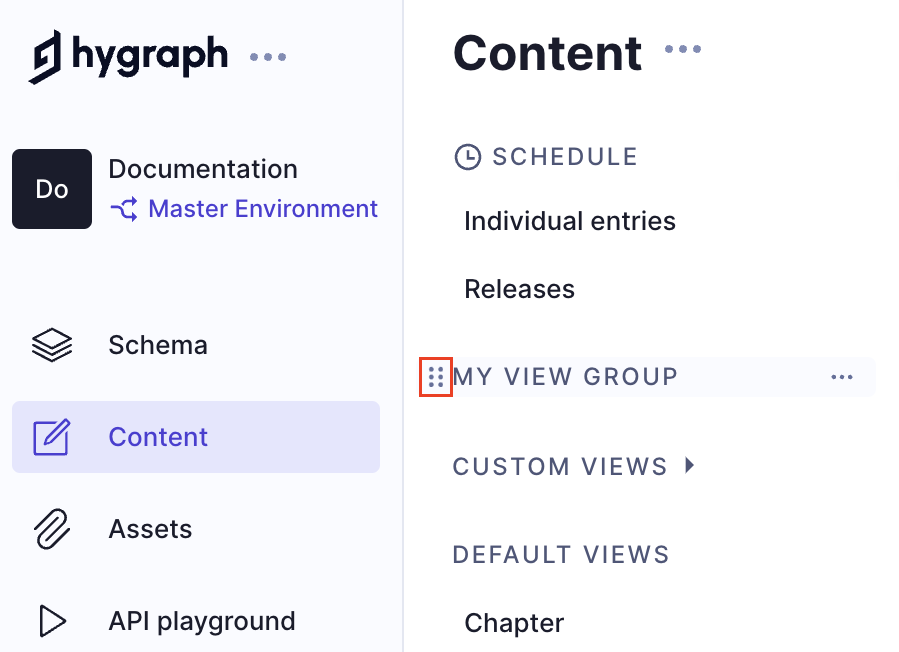 Reorder custom view groups
Reorder custom view groups
- Hover your mouse next to a custom view group.
- Grab the six-dot handle to the left of the label.
- Change the order of where view groups appear.